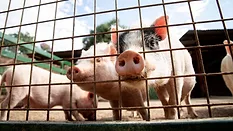
International
International food safety covers strategies, regulations, initiatives, and challenges to food safety and quality on global, regional, national, and other scales.
Articles
More ArticlesPodcasts
More PodcastsNever miss the latest news and trends driving the food safety industry
eNewsletter | Website | eMagazine
JOIN TODAY!Copyright ©2025. All Rights Reserved BNP Media.
Design, CMS, Hosting & Web Development :: ePublishing



